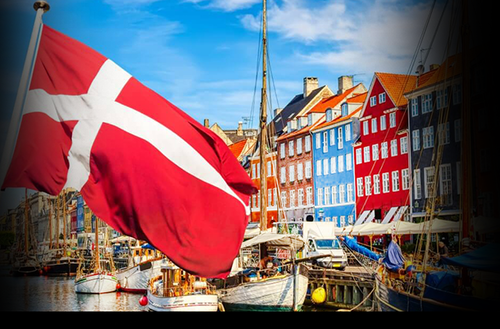Plain Jane
Just Plain Jane

Scholz, Macron say diplomacy can fix Ukraine-Russia standoff – DW – 01/25/2022
German Chancellor Olaf Scholz and French President Emmanuel Macron embraced talks with the Kremlin as a means to de-escalate the crisis. At the same time, they said Russia would pay a "high price" if it attacked Ukraine.
Scholz, Macron say diplomacy can fix Ukraine-Russia standoff
German Chancellor Olaf Scholz and French President Emmanuel Macron embraced talks with the Kremlin as a means to de-escalate the crisis. At the same time, they said Russia would pay a "high price" if it attacked Ukraine.
Watch video00:36
Germany's Scholz calls on Russia to de-escalate tensions
German Chancellor Olaf Scholz met with French President Emmanuel Macron in Berlin on Tuesday, with the two leaders welcoming diplomatic efforts to resolve the Ukraine-Russia crisis.
The German and French leaders discussed a coordinated response should Russia move forward with an invasion of Ukraine.
Watch video00:46
EU's Borrell on Ukraine crisis: 'Path of dialogue' will continue
What did Scholz and Macron say?
Scholz called on Russia to pursue "clear steps" to de-escalate tensions.
Scholz said a Russian threat to Ukraine's territorial integrity would bear "serious consequences" for Moscow. In addition, he defended how the German government has handled the crisis.
"We have done a great deal to actively support economic development and democratic development in Ukraine," Scholz said.
Macron said the two countries are "united" in the need for de-escalation in Ukraine.
"If there is an attack, there will be retaliation and the price (for Russia) will be very high," Macron said.
At the same time, the two leaders said diplomatic talks will continue.
"We will never give up dialogue with Moscow," Macron said.
Representatives from Russia, Ukraine, Germany and France will meet in Paris tor talks on Wednesday in what's known as the Normandy format, a development which was praised by Scholz.
The French president also said he would hold phone talks with Russian President Vladimir Putin on Friday, as part of a "demanding dialogue" with the Kremlin.
Where do Germany, France stand on the Ukraine crisis?
Both Germany and France have expressed concerns about additional sanctions against Russia.
Scholz has previously said European states must consider the cost of sanctions towards Russia, and how that could affect their own economies. Germany, for example, is a major importer of Russian gas. Franco-Russian commercial ties plummeted by about a third soon after the annexation of the Ukrainian peninsula of Crimea and amid the EU sanctions imposed in response, but they have been recovering steadily since.
Macron has previously said sanctions do little to deter Russia's actions.
France has also called for a European solution to the crisis, such as the aforementioned "Normandy format" talks, instead of relying on the US.
Germany, France divided on weapons exports
An area of disagreement between the two allies revolves around weapons exports. France has expressed a willingness to provide additional arms to Ukraine, while Germany has blocked exports to Kyiv.
Ukraine's foreign minister has criticized Germany's reluctance to send "defensive" weapons, and said the move is encouraging Russian President Vladimir Putin.
Military exports have been a sensitive issue in Germany ever since World War II. On principle, the country claims to almost never export weaponry to active conflict zones, although critics allege that these rules are not always kept.
Watch video01:41
Ukraine calls for calm as US puts troops on higher alert
Both France and Germany are aligned, however, on providing both diplomatic and financial support for Ukraine.
Ukrainian leaders on Tuesday urged citizens to remain calm amid tensions. Ukrainian President Volodymyr Zelenskyy said Western countries pulling out personnel from embassies in Kyiv does not signal an imminent conflict.
"Protect your body from viruses, your brain from lies, your heart from panic," Zelenskyy said in video remarks.
Biden says US could target Putin with personal sanctions
US President Joe Biden, meanwhile, said Washington could hit Russian President Putin with personal sanctions in the event of a Russian invasion.
At the same time, Biden told reporters he has "no intention" of dispatching US troops to Ukraine.
wd/msh (Reuters, dpa)













